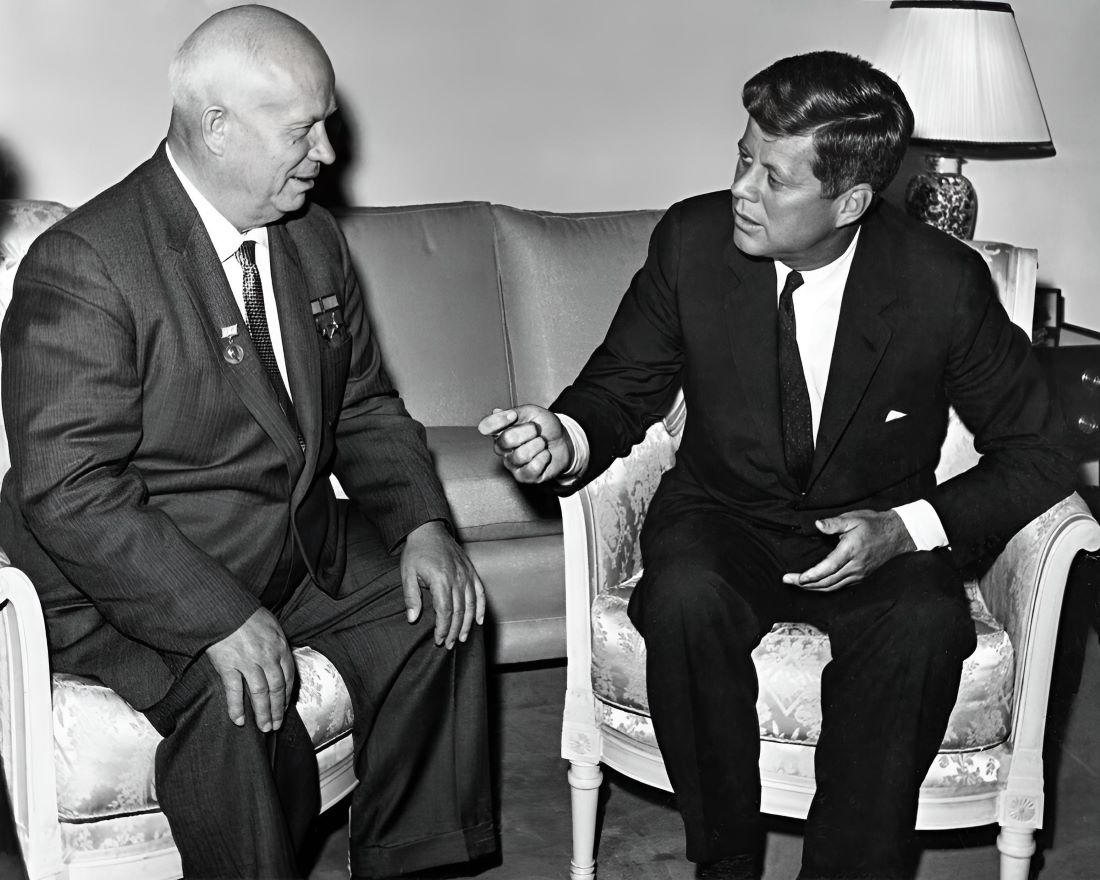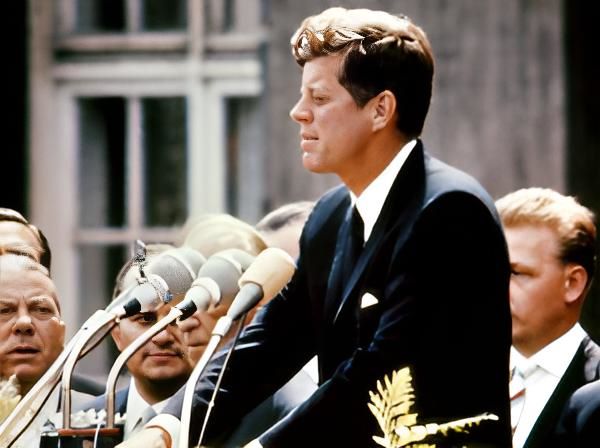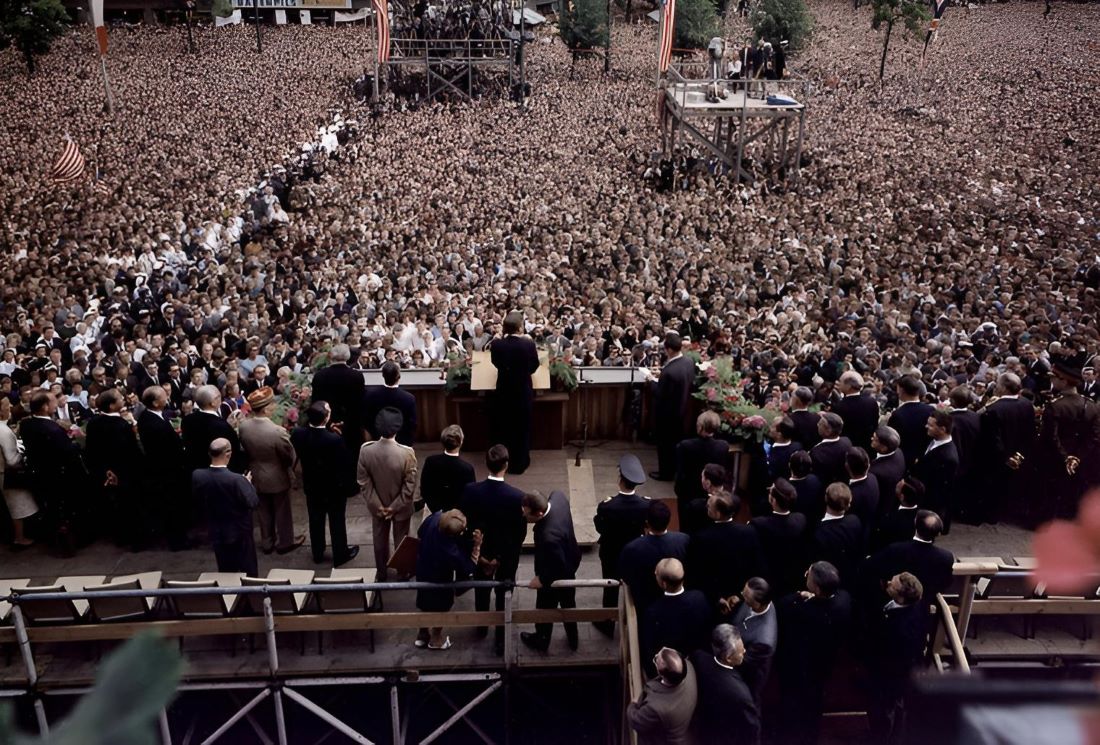Ich bin ein Berliner is one of the most iconic phrases in modern history, uttered by U.S. President John F. Kennedy on June 26, 1963, during a visit to West Berlin. This declaration, made at the height of the Cold War, became a symbol of American solidarity with the citizens of Berlin and, more broadly, with all those living under the threat of Soviet influence. The phrase encapsulated the United States’ commitment to defending freedom in the face of communist expansion, making it a defining moment of Kennedy’s presidency and a lasting symbol of the struggle for freedom during the Cold War.
John F. Kennedy’s Cold War Policy
John F. Kennedy’s presidency was marked by significant challenges and crises related to the Cold War, a period of geopolitical tension between the United States and the Soviet Union. Elected in 1960, Kennedy inherited a world on the brink of nuclear conflict, with the Berlin Wall, erected in 1961, standing as a stark symbol of the division between East and West. Kennedy’s approach to the Cold War was one of containment and cautious diplomacy, aiming to prevent the spread of communism while avoiding direct military confrontation with the Soviet Union.

Kennedy’s administration dealt with several critical Cold War incidents, most notably the Cuban Missile Crisis in October 1962. The crisis brought the world to the brink of nuclear war but ultimately ended with a peaceful resolution, reinforcing Kennedy’s reputation as a leader capable of navigating the complexities of Cold War diplomacy. His policies during this period were characterized by a mix of military preparedness and diplomatic efforts to ease tensions, including the signing of the Nuclear Test Ban Treaty in 1963.
The Context of “Ich bin ein Berliner
Kennedy’s visit to Berlin in June 1963 came at a time when the city was the epicenter of Cold War tensions. Berlin had been divided into East and West following the end of World War II, with the Eastern part controlled by the Soviet Union and the Western part by the Allied forces of the United States, United Kingdom, and France. The construction of the Berlin Wall in 1961 by the East German government, with Soviet backing, had physically separated the two parts of the city, preventing East Germans from fleeing to the West.

When Kennedy arrived in Berlin, the city was not just a geopolitical flashpoint but also a symbol of the broader struggle between democracy and communism. His speech at the Rathaus Schöneberg was intended to reassure the citizens of West Berlin that they had not been abandoned by the West. By declaring “Ich bin ein Berliner,” Kennedy emphasized that the United States stood firmly with the people of Berlin, and by extension, with all those resisting Soviet domination. The speech was met with enormous enthusiasm, solidifying Kennedy’s image as a defender of freedom.
Conclusion
John F. Kennedy’s visit to Berlin and his famous declaration, “Ich bin ein Berliner,” remain pivotal moments in Cold War history. The visit underscored the importance of Berlin in the global struggle between the East and the West and demonstrated the United States’ unwavering commitment to its allies. Kennedy’s words not only provided comfort to the citizens of Berlin but also sent a powerful message to the Soviet Union: the free world would stand together in the face of oppression. The speech has since become a symbol of the enduring fight for freedom and the resolve of democratic nations during one of the most challenging periods in modern history.
Historical Challenge: Can You Conquer the Past?
Answer more than 18 questions correctly, and you will win a copy of History Chronicles Magazine Vol 1! Take our interactive history quiz now and put your knowledge to the test!

